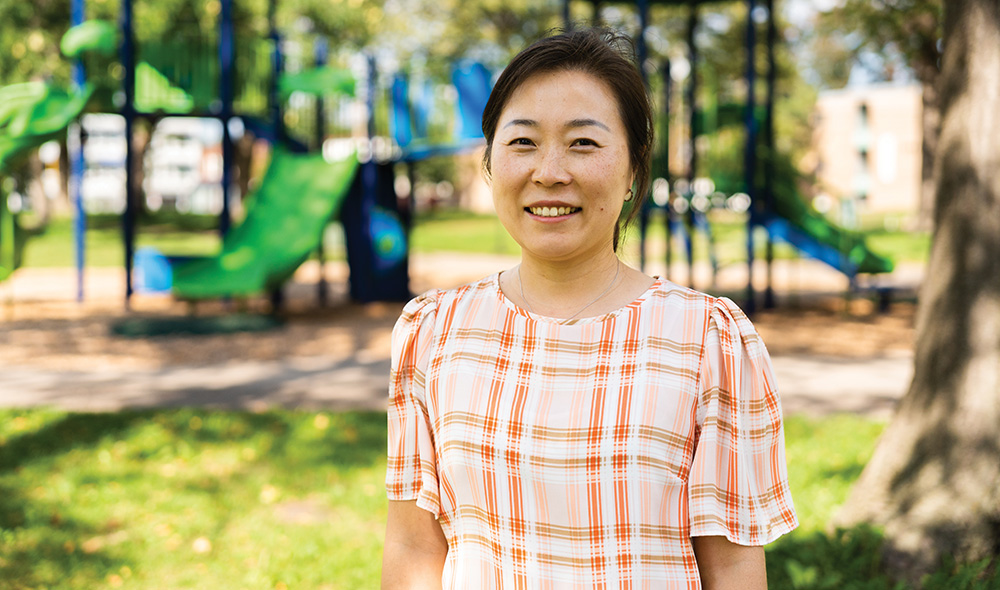New research seeks to reduce the summer health gap
Lee awarded NIH grant to evaluate Summer Food Service Program
October 25, 2022
Brett Stursa

Assistant Professor Jiwoo Lee's new research will identify characteristics of the Summer Food Service Program that drive usage.
Assistant Professor Jiwoo Lee, PhD, RN, LSN, is leading the evaluation of public health nutrition programs to guide future development of childhood obesity prevention interventions designed to reduce weight-related disparities.
Lee was awarded a National Institutes of Health K23 award for Reducing the summer health gap: Evaluation of community-based child nutrition assistance program.
“We all know healthy eating is important for children’s growth and development,” says Lee. “When children develop healthy eating habits at a young age, those habits are more likely to be carried forward into adulthood.”
Lee’s research is evaluating the Summer Food Service Program (SFSP), a community-based child nutrition assistance program funded by the United States Department of Agriculture. This program addresses the nutritional gap of increased food insecurity that low-income children experience during the summer months by providing meals to children at program sites, like parks and community centers.
Lee is conducting a prospective observational study to describe program site and participant characteristics. This study will evaluate the current program implementation and determine if the site and participant characteristics are associated with child program attendance and changes in food insecurity, diet quality and weight gain.
Two cohorts of elementary school-aged children and their parents, for a total of 210 families, will participate in data collection before and in the final weeks of the program. They will be recruited through SFSP sites in the Twin Cities. Data collection components include an online psychosocial survey, three 24-hour dietary recalls, and measurement of height, weight and percent body fat. Additionally, parents will report program usage weekly during the program.
“I’m hoping that we can identify important characteristics of the Summer Food Service Program that drive children’s program usage,” says Lee. “Additionally, the study will help us better understand if and how the program participation contributes to children’s nutritional health.”
Health equity, collaborations with community partners
The K23 award also includes protected time for career development. A multi-disciplinary team of mentors at the University of Minnesota will guide the project and career development activities in areas of health equity approaches in reducing food insecurity and weight gain, advanced statistical skills for use in evaluation of the long-term impacts of public health programs, implementation science and intervention development, and collaborations with community partners. Mentors include School of Nursing’s Jayne Fulkerson, PhD, and School of Public Health’s Lisa Harnack, DrPH, RD, MPH, Weihua Guan, PhD, and Nancy Sherwood, PhD.
“As an early-career investigator, I’m deeply thankful for this support in being an independent researcher under mentor guidance,” says Lee. “There are many layers to consider when conducting a community-based research study. My mentors’ diverse expertise and insight will help me grow as a researcher and advocate for children and their families’ health needs through rigorous scientific discovery.”
